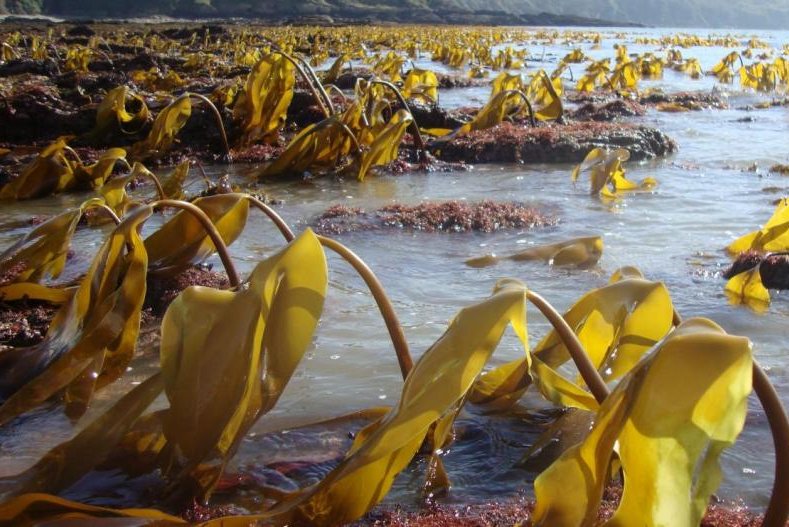The abundance of warm water kelp species are increasing in kelp forests along the British coast. Photo by Albert Pessarrodona
Aug. 24 (UPI) -- As oceans warm, the dynamics of kelp forest ecosystems are changing.
A new survey of kelp forests off Britain's southwest coasts found the abundance of the warm water kelp species Laminaria ochroleuca has increased. The change could affect the ecological functions provided by kelp forests, as well as the mix of species that rely on kelp forests for food and shelter.
"As the ocean warms, species are moving up slopes and towards the poles in order to remain within their preferred environmental conditions," marine biologist Albert Pessarrodona said in a news release. "Species with warm affinities are migrating to many habitats previously dominated by cold-water ones, transforming ecosystems as we know them."
Warm water kelp species were once rare along British coasts, but are now omnipresent, researchers reported in their new paper, published this week in the Journal of Ecology.
"The warm-water kelp Laminaria ochroleuca was actually first detected in the U.K. in the late 1940s, but is now a common sight along the southwest coast," said Dan Smale, research fellow Plymouth University. "It is predicted to continue expanding northwards in response to climate change, occupying most of the U.K. and large sections of the wider northeast Atlantic coastline by the end of the century."
Like forests on land, kelp forests are essential to thousands of species. They offer species food and protection from predators. For humans, kelp forests also offer vital ecological function. They absorb CO2 and stifle wave energy, helping protect coastlines. One recent study showed kelp can help protect shell-forming bivalve species from ocean acidification.
Warm water kelp species grow and shed their leaves all year round, providing more food to herbivores like sea snails. The presence of warm water kelp species also accelerates decomposition rates on the ocean floor.
Though kelp forests will continue to protect coasts from waves and absorb CO2, they may cease to provide food and shelter to some species important to commercial fisheries.
"Our findings suggest that the proliferation of the warm water kelp will alter the dynamics of northeast Atlantic marine forests by modifying the quantity, quality and availability of food," said Andy Foggo, researcher at Plymouth's Marine Biology and Ecology Research Center. "In other research we have also seen that the warm-water kelp harbors less biodiversity than the cold species. Such changes in the provision of habitat and food could eventually affect commercially important species such as crabs, lobsters and coastal fish."















